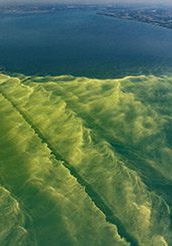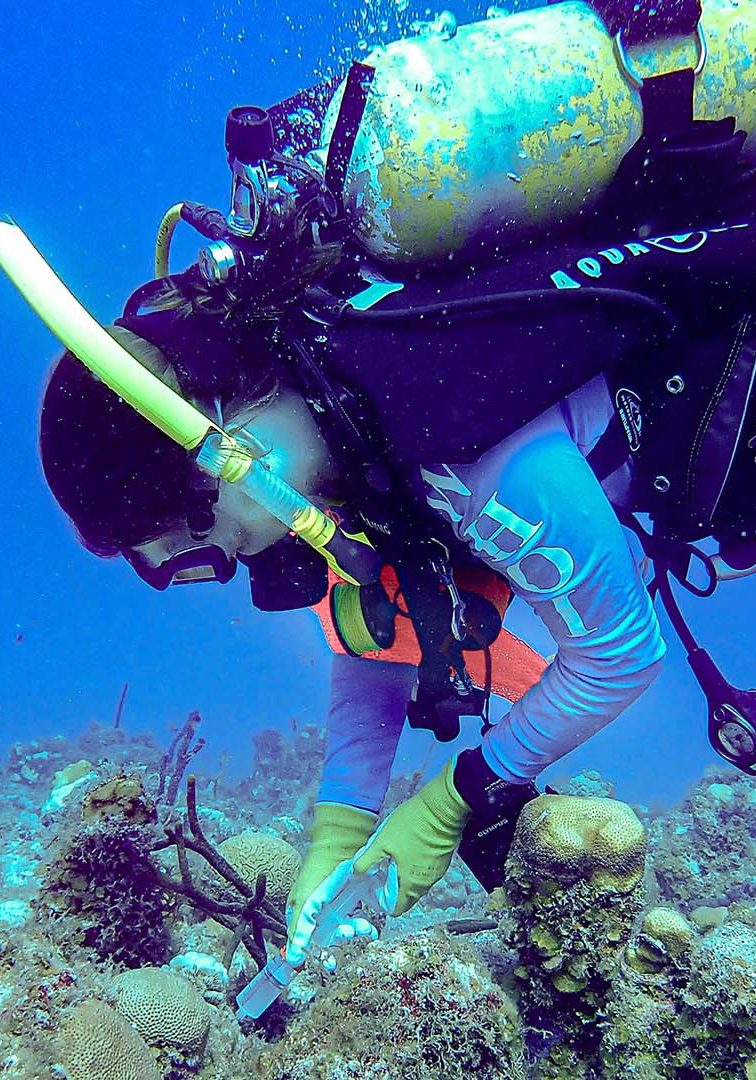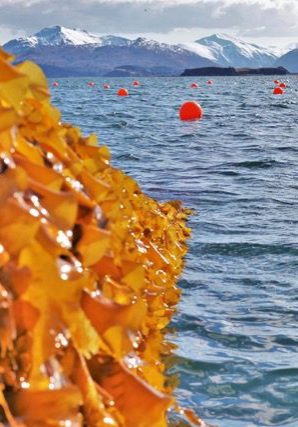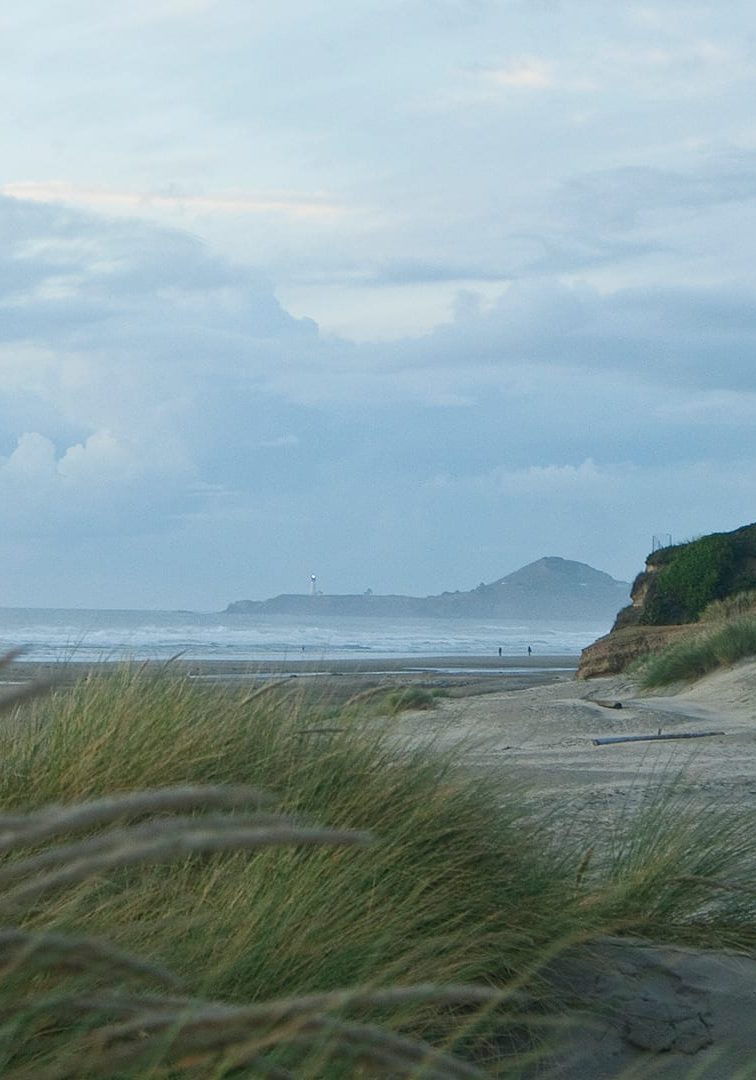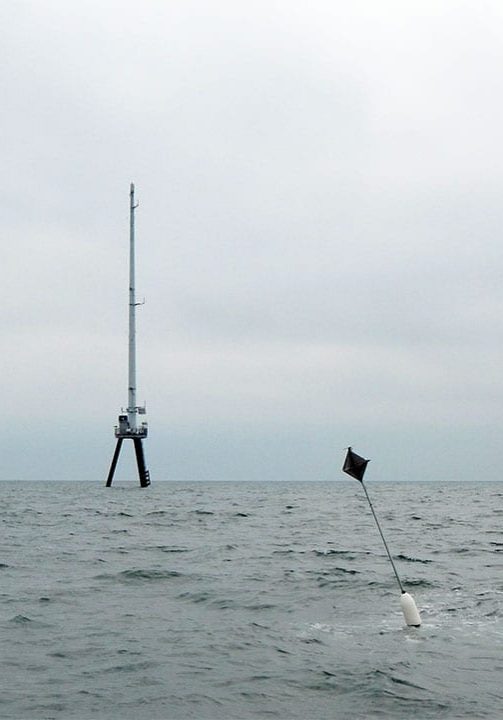Research
The Marine Policy Center (MPC) conducts social scientific research that integrates economics, policy analysis, and law with the Institution’s basic research in ocean sciences. Funding for our work comes from federal agencies (including NOAA, NSF, DOE and the USDA), private foundations, and industries. Recent research topics include:
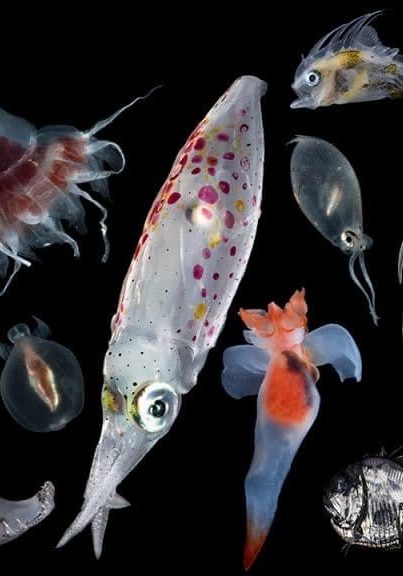
Bioeconomics of the Ocean Twilight Zone (OTZ)
As the demand for fishmeal grows and as technological change leads to cost reductions in deep-sea fishing, the large-scale commercial harvesting of meso-pelagic fish is becoming a reality. Absent a management regime, there are real risks of resource over-exploitation that may adversely affect the valuable benefits humans realize from the OTZ, including the production of fish protein and the sequestration of carbon. These benefits could be impacted by disruptions of existing food webs involving highly valued commercial species or disruptions of the biological carbon pump. In order to characterize the scale and scope of these risks, MPC scientists are developing a dynamic, integrated, socio-environmental modeling framework to characterize potential impacts on surface fisheries and the carbon cycle and to identify effective policy alternatives.
Harmful Algal Blooms (HABs)
Along the Washington and Oregon coasts, fisheries for razor clams and Dungeness crabs have been impacted adversely by marine algae that produce domoic acid. The razor clam fishery is the largest recreational bivalve shellfish fishery in the region and a major source of tourist-related income to small communities along the coast, generating as much as $40 million in Washington and $12 million in Oregon annually. The Dungeness crab fishery is the largest commercial fishery in the area and a major employer in these coastal communities. The Pacific Northwest (PNW) Harmful Algal Blooms (HAB) Bulletin is a forecasting tool that provides information to managers in both states to facilitate their decisions to open and close the shellfisheries. In collaboration with colleagues from the University of Washington, Washington State Department of Fish and Wildlife, Oregon Department of Fish and Wildlife we are estimating the economic benefits of the PNW HAB Bulletin, using a methodology for quantifying the value of information.
Coral Reefs
Coral reefs provide highly productive habitat for fisheries in the tropics. But coral reefs today face unprecedented threats from both direct exploitation of reef resources and more recently, climate change. Traditional coral reef Marine Protected Areas (MPAs) are designed to manage local threats, with criteria for protections focused on, for example, biodiversity indices and fish spawning grounds. Yet, while the speed and scale of climate change impacts on coral reefs threaten to overwhelm these efforts, climate resilience is not yet integrated into management strategies for coral reefs. Collaborating with the Cohen Lab, we are employing economic models to extend an existing framework for MPA design to incorporate information about climate change resilience, specifically the locations of thermally-tolerant coral reef communities that have potential to survive future warming, fuel the recovery of neighboring reefs and increase the success of reef restoration efforts.
Aquaculture, Shellfish Farming, and Biofuel Production
To support commercial aquaculture development and expansion in the Northeast US, we are developing a deeper understanding of public interests and concerns about a specific set of aquaculture farm designs and operations. In this way, public preferences can be incorporated into business and management plans at the earliest stages of development. In particular, we are using a multi-step methodology to develop and implement a self-administered stated preference survey to identify key public preferences related to design and siting of potential aquaculture projects in southern New England. Innovative outreach strategies will be used to share these key preferences with growers, managers, and other stakeholders.
MPC researchers are also supporting efforts to increase seafood protein production and improve economic opportunities for women shellfish growers and their families in coastal villages of East Africa through sustainable hatchery-based production of local shellfish species. In the short term, we are developing a pilot project to demonstrate this concept in Zanzibar, Tanzania. The current stage of this work focuses on the operation of a shellfish hatchery on the campus of the State University of Zanzibar (SUZA), and training of local technicians and students in shellfish hatchery operations in collaboration with SUZA. This project addresses two main problems: the need for additional protein for both local people and tourists in coastal regions of East Africa, and the need for more economic development opportunities for women in coastal villages of East Africa.
We are also helping to develop technology for and determine the economic feasibility of large-scale open ocean seaweed farming to generate feedstocks for bio-fuel production from kelp (New England, Alaska) and from tropical seaweeds (Puerto Rico). The focus of MPC’s contribution to these projects is the techno-economic analysis of very large open ocean seaweed farms, with the goal of estimating the production cost that may be achievable with farms producing up to 100,000 dry tonnes of seaweed per year.
Shoreline Change
We are developing new tools and information to improve an understanding of the alongshore-coupled interactions between geomorphic processes and the economics of human shore-line protection measures, and how developed shoreline dynamics may change due to climate-driven exogenous effects, such as sea-level rise. Model results are integrated within a realistic policy framework to offer guidance on economically efficient and sustainable ways to manage coastline resources. The multi-disciplinary project team includes geomorphologists, policy/economic scientists, and legal experts who have an established history of successful collaboration with integrated geo-economic models of coastal evolution involving human interventions.
Offshore Wind Development
MPC researchers are developing approaches to estimate the likely economic impacts of offshore wind farms on commercial and recreational fisheries. The specific wind farms being modeled are those proposed for federal waters in southern New England. The work includes developing baselines from historical fishing activity and landings data, and building estimates of how wind farm construction, operations, and decommissioning are likely to affect fish stocks, fishing activity, and fishery landings.

